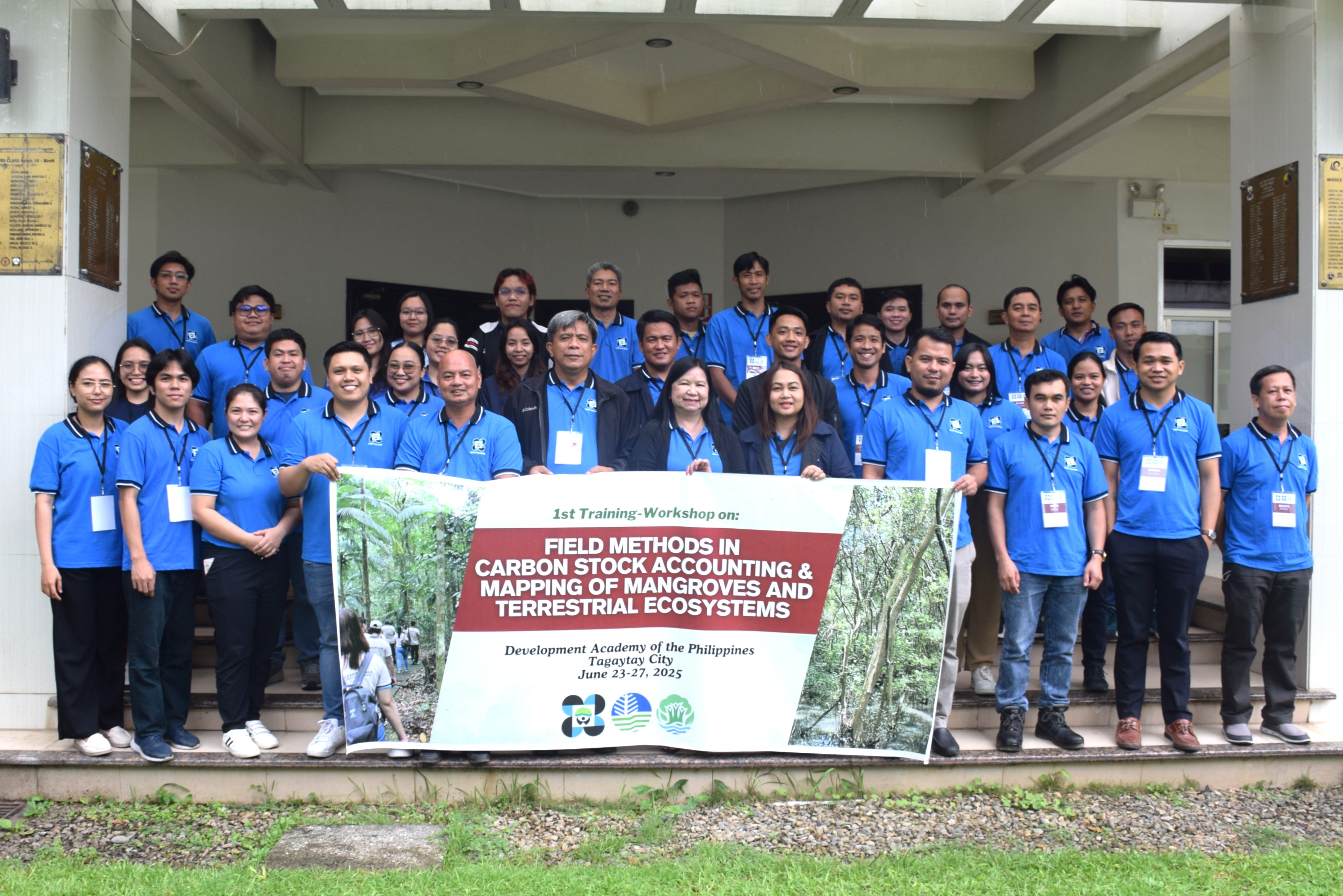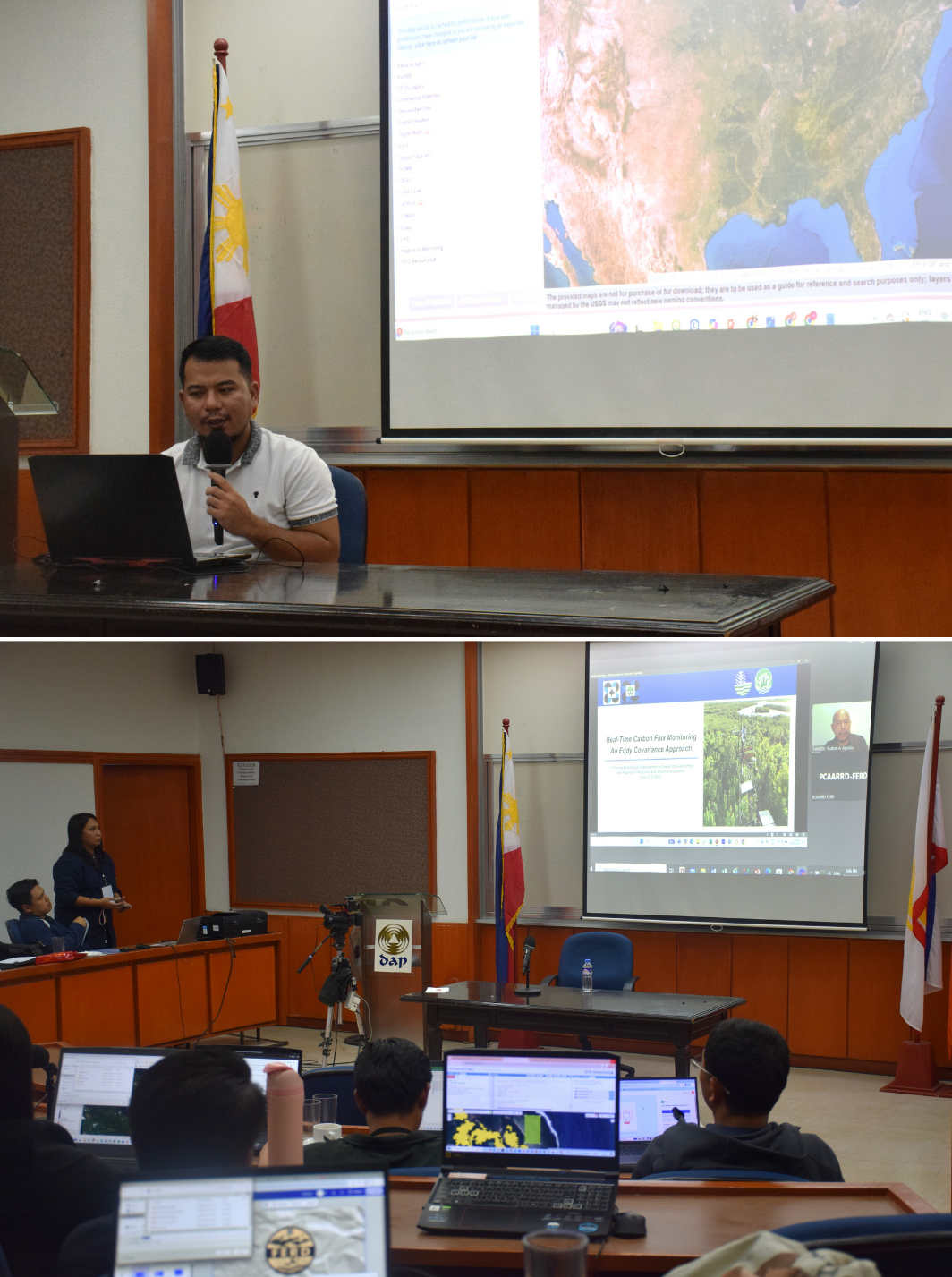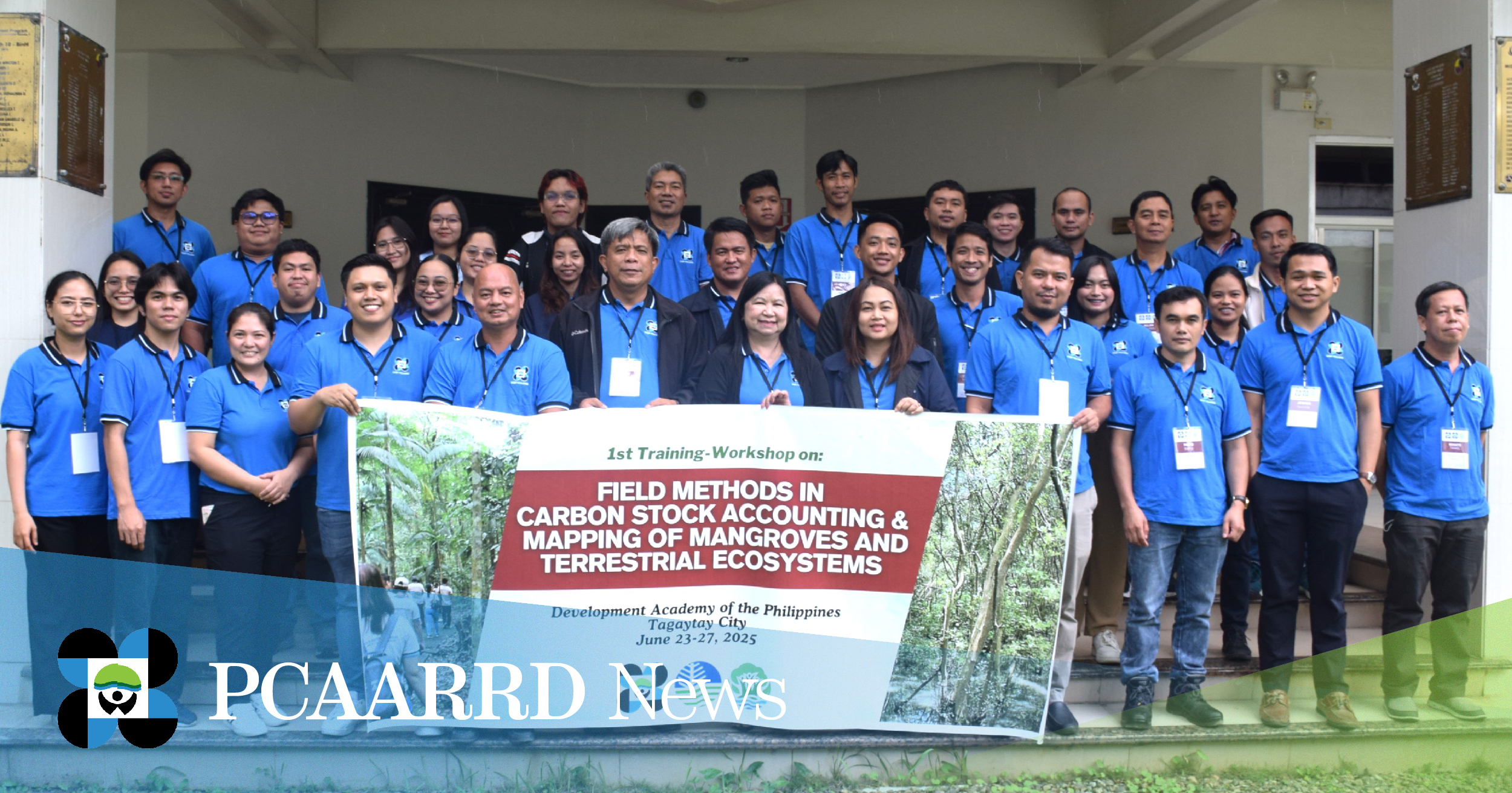
As global action addressing climate change and habitat degradation becomes more urgent than ever, conducting reliable assessments and establishing data for carbon stocks in critical ecosystems have become essential for collective monitoring and science-based policy development.
As a response, the Philippine Council for Agriculture, Aquatic and Natural Resources Research and Development of the Department of Science and Technology (DOST-PCAARRD), through the Forestry and Environment Research Division (FERD) and Institution Development Division (IDD), launched the training-workshop, “Field Methods in Carbon Stock Accounting and Mapping of Mangroves and Terrestrial Ecosystems,” on June 23 to 27, 2025 at the Development Academy of the Philippines Conference Center in Tagaytay City.
In partnership with the experts from Ecosystems Research and Development Bureau of the Department of Environment of Natural Resources (DENR-ERDB), the training equipped its participants with foundational knowledge and field application experience in measuring, monitoring, and mapping of carbon stocks in mangrove and terrestrial ecosystems, thus, empowering more researchers to conduct carbon assessment studies.

Intensive lectures in characteristic elements of terrestrial forests and forested wetlands were delivered by For. Alvin S. Gestiada, while Dr. Jose Alan A. Castillo lectured on carbon stock assessment techniques.

Furthermore, For. John Rommel F. Manahan discussed mapping of carbon stock data using ArcGIS/QGIS and For. Rustum A. Aguilos presented the applications of theories in the ongoing PCAARRD-funded PhilFlux project featuring cutting-edge carbon sequestration measurement methods.
Field demonstrations in terrestrial and mangrove forest sites led by Dr. Castillo and For. Gestiada were arranged to immerse participants in actual field data collection. The group proceeded to Cavite State University (CvSU) Agri-Eco Tourism Park for the terrestrial practice, then they visited a mangrove nursery in Nasugbu, and Ang Pulo Mangroves in Calatagan, Batangas for the mangrove sites.
Towards the end of the training-workshop, the participants applied their week-long learnings by crafting and presenting their research proposals and action plans, which they can implement in their respective institutions.
The 27 training participants came from 19 government agencies from various parts of the country, including from ERDB and its attached centers: Forest and Wetland Research, Development and Extension Center (FWRDEC), Ecosystems Research and Development Bureau (ERDB), Urban and Biodiversity Research Development and Extension Center (UBRDEC), Toxic and Hazardous Wastes Research Development and Extension Center (THWRDEC), Watershed and Water Resources Research Development and Extension Center (WWRRDEC); DENR Regions 1, 2, 3, 4A, 4B, CAR, and NCR; and researchers from seven of the country’s state universities and colleges (SUCs) namely: Mariano Marcos State University, Cagayan State University-Gonzaga Campus, Isabela State University, Apayao State College, Batangas State University, Bicol University-Guinobatan, and Sorsogon State University.


